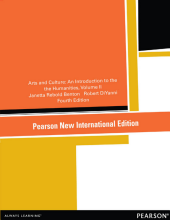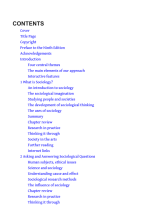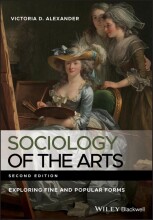Autonomy and Precarity - Banks (2010). Autonomy Guaranteed? Cultural Work and the 'Art-Commerce Relation': a Synthesis and Review
3 important questions on Autonomy and Precarity - Banks (2010). Autonomy Guaranteed? Cultural Work and the 'Art-Commerce Relation': a Synthesis and Review
Banks (2010) highlights three cultural critics who oppose the notion that artists can achieve autonomy from market forces.
One of the critics, Michel Foucault (1926-1984), explains his argumentation with the term 'governmentality'.
What does he mean with this word?
- Governmentality describes how power is not vested solely in the hands of powerful figures (e.g., king, CEO, president) who directly control people (including artists), but rather how it is dispersed throughout society and its structures.
- Foucault was particularly interested in how power operates, and he used this term to elucidate that while nobody directly controls them, artists are still indirectly influenced because they unconsciously self-regulate to align with societal and market pressures."
Banks (2010) highlights three cultural critics who oppose the notion that artists can achieve autonomy from market forces.
Although agreeing to some extent with these critics, Banks doesn't agree with everything they say. What is the main contradiction of Banks to the critiques?
- Banks states that they ignore the possibility for contradictions.
- I.e., he has a more ambivalent view on autonomy; it is an area of negotiation between multiple actors (market demands, artistic pursuits, commercial interests).
- Reality is complex, commercial interests can either limit or expand artistic autonomy.
- Part of the complexity comes from the fact that there are more actors involved in the creation of an artistic work than just the artist and the firm (e.g., the public also determines the cultural value of an artistic work).
In his paper discussing artists' autonomy, Banks (2010) makes notes of some arguments about the (political) potential of autonomy.
What are the four arguments he notes and what is the conclusion we can draw from this?
- Arguments:
- Radical social transformation: art as a generator for social possibilities.
- Self-realization: art as a way for people to survive within capitalism while finding self-expression and meaning.
- Novel work: Audiences and markets demand novel work which emerges from autonomy.
- Beyond the commercial: Artists are neither commercial, nor anti-commercial, but create work beyond the commerical.
- Conclusion:
- Commercial actors have an interest in maintaining a degree of autonomy for artists.
The question on the page originate from the summary of the following study material:
- A unique study and practice tool
- Never study anything twice again
- Get the grades you hope for
- 100% sure, 100% understanding































